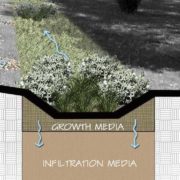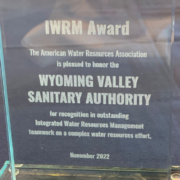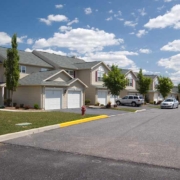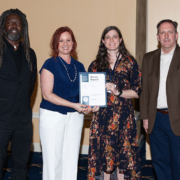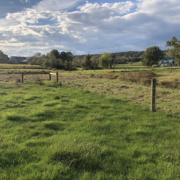Reduce the Cost of MS4 Compliance and Pollutant Reduction Plans Through Cooperation
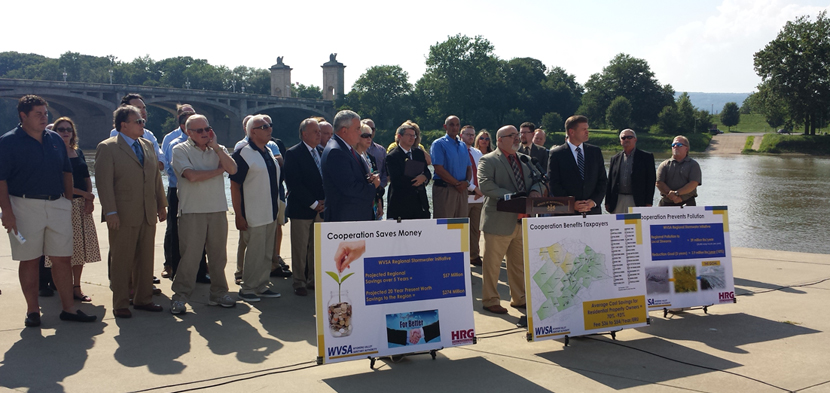
Stormwater management has become a major priority for environmental agencies over the past decade, and communities are struggling to meet the increasing requirements to reduce stormwater pollutants and runoff volume. The cost is simply too high for many municipalities to bear alone, but it becomes much more manageable if municipalities can share the burden with their neighbors.
Take the Pollutant Reduction Plan requirement of the MS4 application as an example. If a municipality submits a Pollutant Reduction Plan on its own, it is limited to constructing BMPs within its own borders or the drainage way of its impaired streams, but DEP will generally accept the construction of BMPs anywhere within the watershed for an MS4 permit that is submitted by a regional cooperative. This means cooperating municipalities can install BMPs that yield the greatest pollutant load reduction for the lowest cost.
Usually the largest expense associated with BMP construction is the cost of acquiring land on which to build the BMP. An individual municipality may not have much land on which to build, particularly if it is an urban municipality in which most of the available land has already been developed. As a result, the municipality may be forced to implement a large number of BMPs that each provide only marginal individual benefit in order to meet the pollutant reduction goal. If a municipality submits a regional plan with other communities in the same watershed, it will have access to a much greater land area on which to build BMPs and a reduced need for right-of-way acquisition and easements. This allows the participating municipalities to build the most effective water quality measures in the places with the greatest need.
Any improvements in upstream water quality will lead to improvements in downstream water quality, so a municipality can still see improvements in its water quality using a watershed-based approach even if a particular BMP is not located within that municipality’s borders.
When BMPs are constructed on a watershed-wide basis, the construction cost is typically lower due to economies of scale, and the water quality results are better.
Herbert, Rowland & Grubic, Inc. (HRG) is working with the Wyoming Valley Sanitary Authority on a regional stormwater collaboration that includes 32 municipalities in Luzerne County. These municipalities intend to meet 70% of their sediment reduction goal with a single BMP: conversion of existing flood control levees into a constructed wetland with a sediment forebay and a meandering stream channel.
Regional cooperation can save municipalities money in other ways besides BMP construction. For example, the cost of preparing the Pollutant Reduction Plan itself will be much lower as a result of cooperation due to economies of scale.
Hiring a consultant to assist with pollutant reduction planning can cost thousands of dollars. If that cost is shared with 10 other municipalities, each individual municipality only has to pay a small portion.
It’s like sharing your first apartment with two roommates when you were in your 20s. The fixed cost of rent and utilities is the same whether one person lives there or three, but each person pays less if they can split that cost three ways (instead of renting their own individual apartments).
Stormwater management involves many fixed costs like the cost of owning equipment to clean out inlets or conduct outfall inspections.
Spreading those costs across a greater number of users means each user pays a smaller price for service.
Another way cooperation can reduce the cost of stormwater management is by giving municipalities increased purchasing power. Generally, you can negotiate lower unit costs for items when you buy them in larger quantities. For example, cooperating municipalities could replace or slip line several miles of pipe for a lower cost if the work was completed as part of a larger, regional project. These savings apply to the bidding of services, too. The municipalities working with the Wyoming Valley Sanitary Authority saved hundreds of thousands of dollars on base mapping (i.e. orthophotography, impervious area, etc.) by participating with WVSA under a single project (rather than having each municipality bid its own contract).
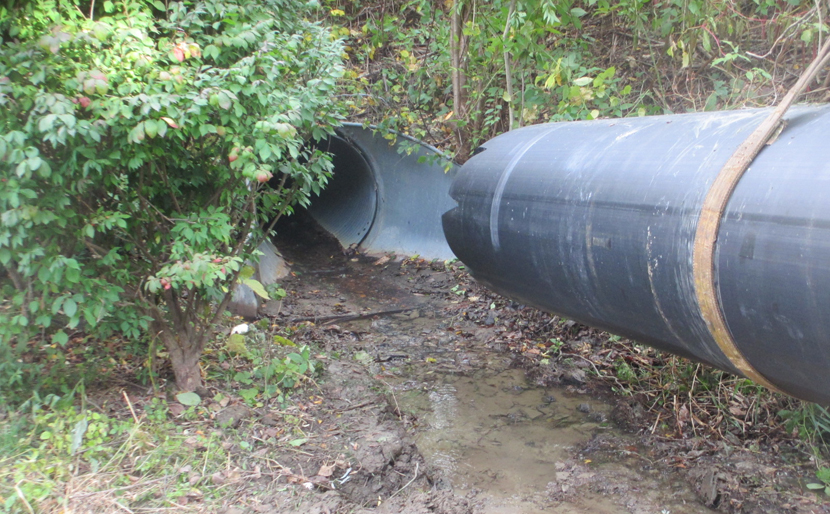
Municipalities have greater purchasing power when they cooperate on stormwater management solutions. For example, cooperating municipalities could slip line several miles of pipe for a lower cost if the work was completed as part of a larger, regional project.
A regional cooperative also has more borrowing power than a single municipality, and funding agencies are more likely to award a grant or loan to a regional project than one submitted by a single municipality. Funding agencies prefer regional projects because they believe regional cooperation streamlines costs, and politicians tend to support projects that benefit as large a constituent base as possible. A regional initiative should be tied together by legal agreements that assure the funding agency all funding will be properly administered. (These legal agreements are also required to meet DEP requirements for submission of a regional pollution reduction plan.)
This post is an excerpt from a longer article in the July-August-September issue of Keystone Water Quality Manager magazine. The article is focused on the cost savings communities enjoy by cooperating with regional partners on their stormwater management programs. Read the magazine for advice on finding partners for your stormwater management program or contact us to request a copy.

Erin G. Letavic, P.E., is the regional manager of civil engineering services in HRG’s Harrisburg office. She guides municipalities and cooperative groups throughout Pennsylvania through the management of their MS4 permits, provides grant application development and administration services, and provides retained engineering services to local government.

Adrienne Vicari, P.E. is the financial services practice area leader at Herbert, Rowland & Grubic, Inc. (HRG). She provides strategic financial planning and grant administration services to numerous municipal and municipal authority clients. She also serves as project manager for several projects involving the creation of stormwater authorities or the addition of stormwater to the charter of existing authorities throughout Pennsylvania.

 Learn more about our work with the Wyoming Valley Sanitary Authority in this 3-part series published in The Authority, a magazine published by the Pennsylvania Municipal Authorities Association.
Learn more about our work with the Wyoming Valley Sanitary Authority in this 3-part series published in The Authority, a magazine published by the Pennsylvania Municipal Authorities Association.
